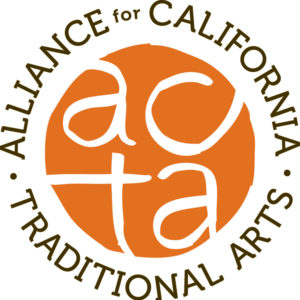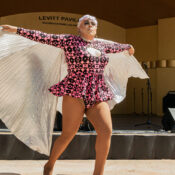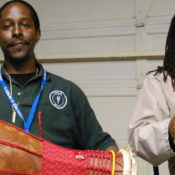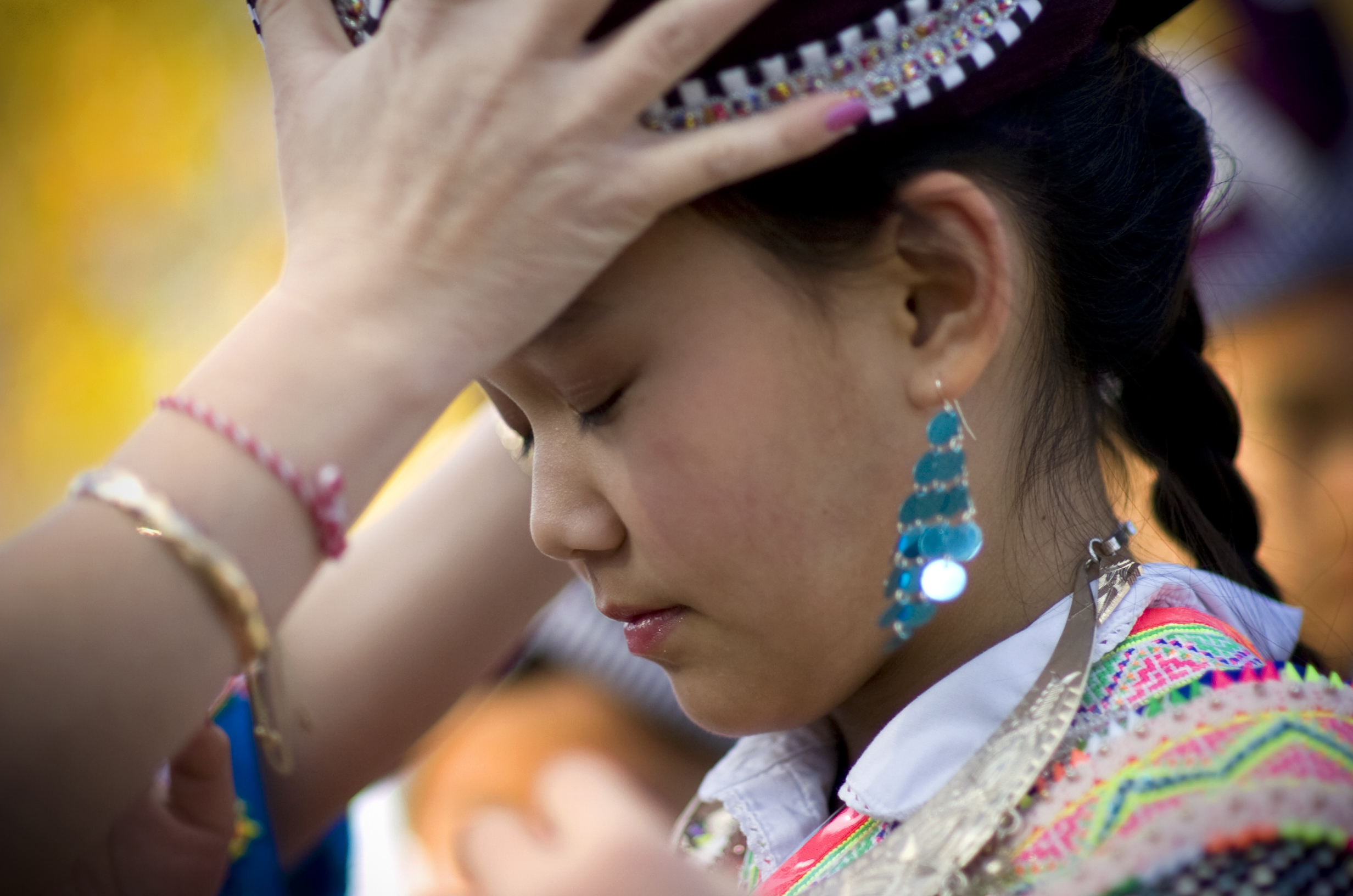Mary Alfaro Velasco, a 2023 Living Cultures grantee, has performed with various mariachi groups, trío romántico ensembles, and other ranchera groups throughout the US. She has recorded with La Santa Cecilia, Gaby Moreno, LA LOM, and José Luis Orozco. Alfaro Velasco has composed and recorded music for professional film, theater, and television productions and has released singles from her first record. Previously, she participated in ACTA’s Apprenticeship Program in 2018 and 2020, learning requinto romántico from José “Pepe” Carlos Gonzalez and Jesus Martinez. For her Living Cultures grant, she is arranging and writing songs for a collection of recordings, which will include several boleros for an album of bolero classics and lesser-known songs to tell a story of gay girl love, loss and healing.
Last year, Mary recorded a studio session for Decibel Studios, with collaborator, and 2018 ACTA Apprenticeship mentor artist, Jesus Martinez:
ACTA: Tell us about the songs you shared for the Breakfast Table Session. What meaning does it hold for you to record and perform these songs?
Mary Alfaro Velasco: I chose to perform songs from the mariachi and bolero tradition that have inspired me throughout my career in music. This session video was slated to go live during Pride Month, so I wanted to interpret songs from artists that have historically had a large queer following and also re-interpret existing songs so that they followed a queer narrative.
The song we opened with was “La Cigarra.” Linda Ronstadt recorded this huapango which was included in her album Canciones de Mi Padre. That album inspired a generation of mariachis, myself included. When I first heard that song, I felt that I needed to learn about ranchera music and wanted to learn to play mariachi guitar.
“Tú Lo Decidiste” is the next song on the video. It’s a piece written by Ana Gabriel, a Mexican singer-songwriter who has been an icon to many queer Latine folks, especially gay Latinas. I changed the gendered pronouns in the lyrics so that the piece is about two women.
My bandmates and I followed with “Para Qué Sufrir,” a piece written by Natalia Lafourcade for her album Hasta La Raiz. That album blew my mind in terms of song-writing, production, instrumentation, and emotion. It’s a great break-up album. It came out when I was processing the dissolution of a relationship with my first lady-love and it provided solace at the time. “Para Qué Sufrir” is about coming to peace when processing the end of a relationship. Natalia Lafourcade wrote such incredible songs for that album. Hasta La Raíz inspired me to write about my personal journey, to write songs and and re-interpret classic boleros in order to tell a story about gay lady love while addressing unique challenges many queer people have faced along our journeys.
I’ve released a few cover songs for my album and am working on the next batch of music. Gratitude to my bandmates featured in this video that have helped me along this musical journey and who have been such great allies: Jesús Martínez, Ramón “Ray” Gudiño, Ismael “Ish” Pineda and Guillermo “Willie” Acuña.
Follow along with Mary’s songwriting process via her Instagram feed and see her work with the bolero music collective Voz Bohemia and her newly-formed trío romántico Los Angelenos. Her music is available on streaming platforms including Spotify, Apple Music, and YouTube.
Read “Queering the Bolero,” an interview with Mary Alfaro from 2020 →

 by ACTA
by ACTA





